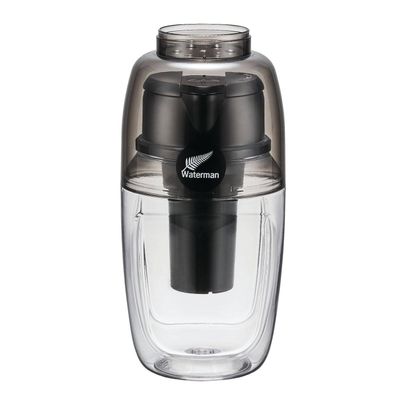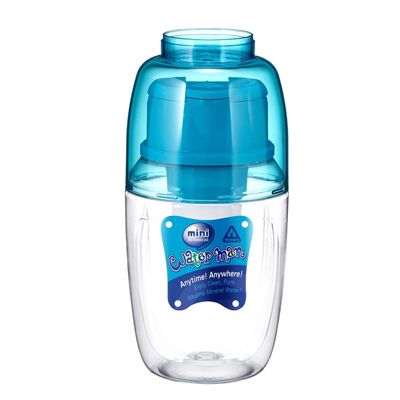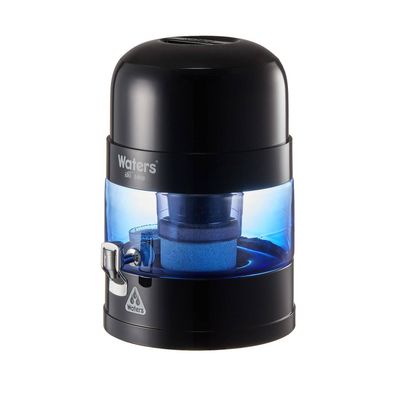

Waterman
Waters
$89.95
Waterman Portable Alkaline Water Filter - On-the-Go Hydration with Essential Minerals
Product Overview:
The Waterman Portable Alkaline Water Filter offers a convenient solution to safe and fresh hydration wherever you are. This compact device uses a multi-layer filtration system, including alkaline minerals, magnets, and activated carbon, to re-mineralize and ionize ordinary tap water. By filtering out chlorine, heavy metals, and bacteria, it ensures you’re drinking clean, healthy water. Perfect for hiking, travel, gym, and daily use, the Waterman is an eco-friendly alternative to bottled water, minimizing waste and providing up to 300 liters of purified water per filter.
Key Benefits:
- Chlorine and Fluoride Reduction: Filters out up to 99% of chlorine and fluoride for safer hydration.
- Alkaline Hydration: Raises pH levels, helping to balance acidity in the body.
- Mineral-Rich Water: Enriches water with essential minerals like calcium, magnesium, and potassium.
- Enhanced Hydration: Reduces water molecule size for quicker cellular absorption.
- Negative Ion Production: Provides energy-boosting ions for rejuvenating hydration.
- Eco-Friendly and Portable: Compact, lightweight design avoids plastic waste and provides an environmentally friendly water solution.
Filter Components:
- Activated Coconut Shell Carbon: Reduces impurities, chlorine, heavy metals, and bacteria.
- Alkaline Minerals: Re-mineralizes water with calcium, magnesium, sodium, and potassium.
- Magnets: Restores water's natural structure, improving hydration efficiency.
- Bio Ceramics and Somelite™ Coral Sand: Enriches water with minerals and reduces positive ions for improved water quality.
Usage:
Simply fill the Waterman from any tap and enjoy clean, fresh water immediately. Replace the filter cartridge after approximately 300 liters or 4 months, depending on usage and water quality. The Waterman is compact and portable, fitting easily into your bag for daily hydration needs.
Precautions:
Not suitable for untreated water sources. Ensure filter replacement as per recommended usage to maintain optimal water quality. Products purchased before February 2017 may not remove fluoride, although they remain compatible with current filter cartridges.
Frequently Asked Questions:
- How long does the Waterman filter last?
- Each filter cartridge lasts up to 300 liters or around 4 months, depending on daily usage and water quality.
- Does the Waterman remove fluoride?
- Yes, the Waterman removes up to 99% of fluoride using nano activated carbon. Older products purchased before February 2017 may not include fluoride removal.
- Is the Waterman safe to use with untreated water?
- The Waterman is designed for tap water and should not be used with untreated or contaminated water sources.
- What are the benefits of magnetized water?
- Magnetized water has a reduced molecular size, enhancing absorption and increasing hydration efficiency at the cellular level.
